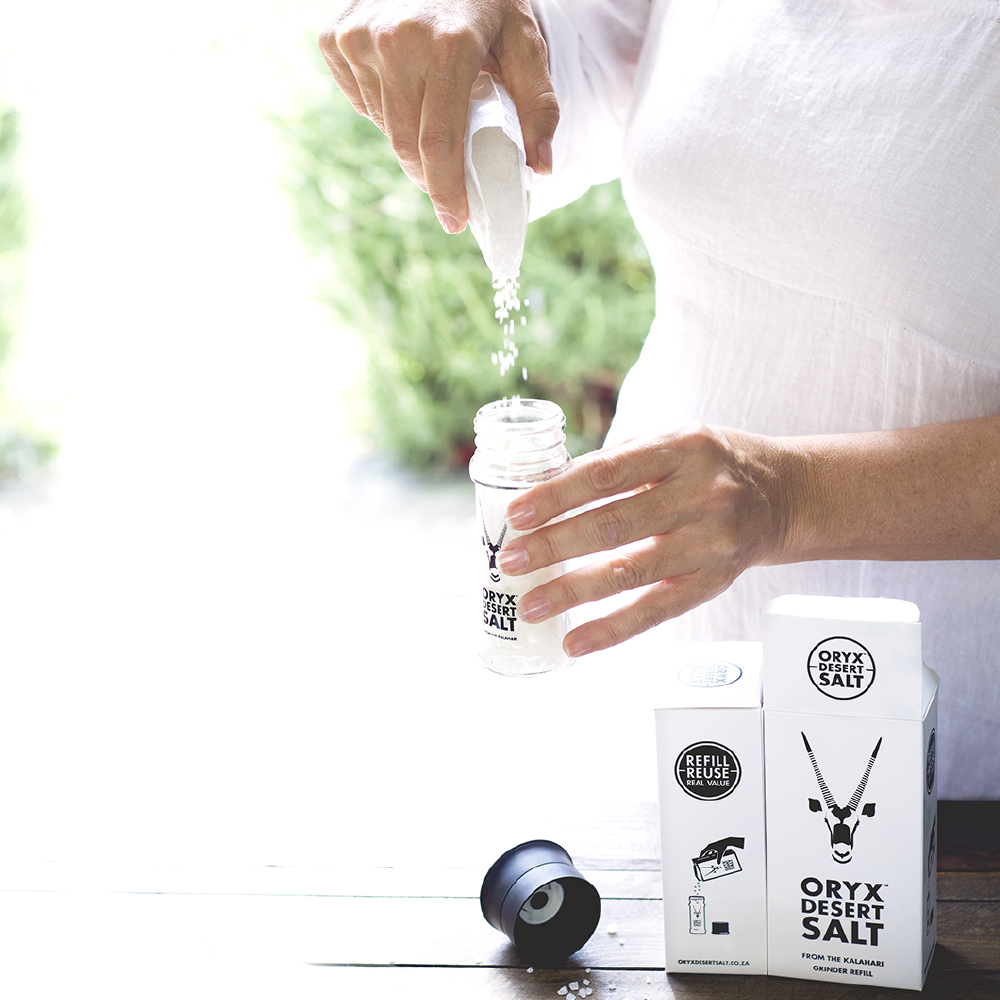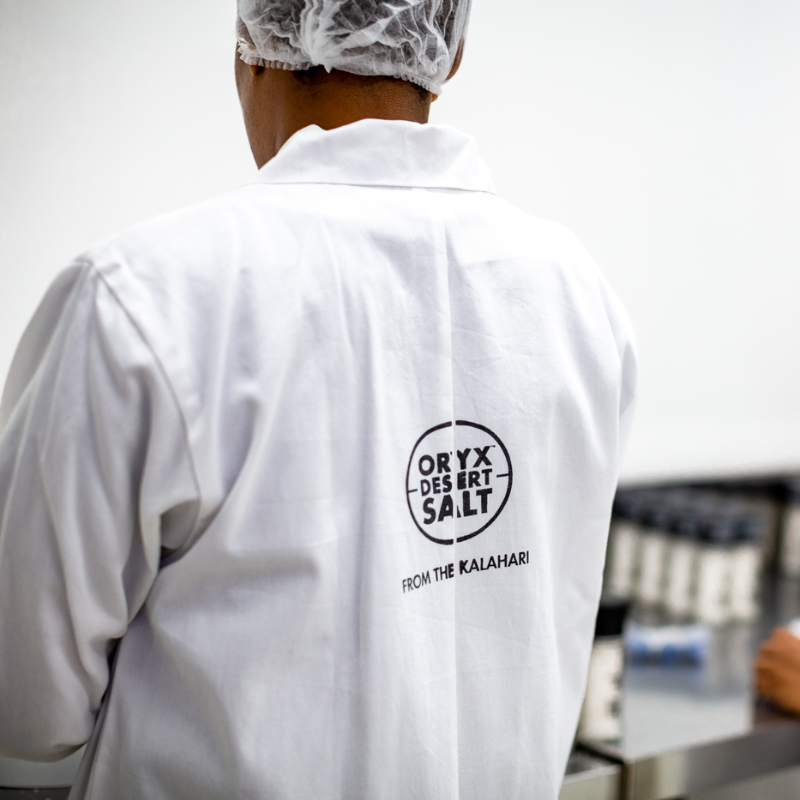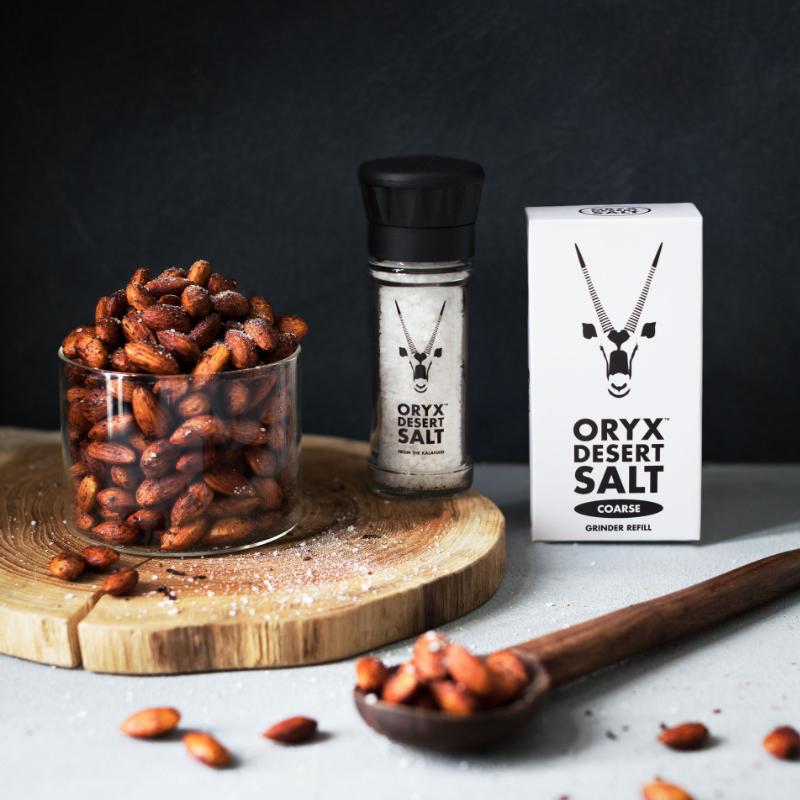In relationships of all kinds – romantic and otherwise – when things aren’t working out, we say the chemistry’s wrong. And when the chemistry’s off, when there’s too much of this and too little of that and the elements are out of balance, we’d be wise to do some adjustment to get the relationship back on track.
You may be wondering what this has to do with salt. The truth is that far from being just an everyday mundane culinary item in your kitchen, the chemistry of salt is critical to your health and well-being. But exactly how much sodium chloride should we be consuming and what should we know about its relationship to other chemical elements?
From 1st July 2016, new legislation kicked in designed to help South Africans consume less salt. Apparently, we eat on average double the recommended daily salt limit of 5 grams, most of which doesn’t come from what we add ourselves but rather from added salt in processed foods. For example, 4 slices of bread can contain as much as 1.6g of salt and salted peanut butter contains 800 times more salt than the unsalted variety.
Foods affected by the new health bill include breakfast cereal, margarines and butter, savoury snacks, potato crisps, processed meats, sausages, soup and gravy powders, instant noodles and stocks; with further salt restrictions to follow in 2019.
We’re told that excess salt intake can increase hypertension thereby contributing to heart disease, strokes and kidney disease.
But in our view, legislation like this tends to focus negatively on a single ingredient – salt - potentially leading people to make the mistake of going to the other extreme and avoiding salt altogether in an effort to reduce their health risks.
The fact is, salt is an essential compound our body uses to absorb and transport nutrients, maintain blood pressure, maintain the right balance of fluid, transmit nerve signals, contract and relax muscles amongst many other functions.
We asked Sue Visser, well known South African author, health researcher and co-creator of the Nature Fresh health range to help us get a grip on what we need to understand about salt and make sense of all the conflicting and confusing information out there.
One of the most contentious issues is the burning question: does excessive salt cause hypertension? Sue Visser’s answer is unequivocal. ‘The answer is no. What you need to understand is that salt is retained in the body as a result of a potassium and magnesium deficiency. If the levels are balanced, you simply eliminate any excess salt out via urination.’ Sue goes on to say in a recent article ‘70% of a human body depends on a saline solution for its existence. Salt imbalances can make us very ill. Throwing away the salt shaker is not the answer. A good balance of minerals and trace elements has to be maintained to carry out vital bodily functions.’
You can read a more detailed description of the way sodium chloride works in our bodies in another of Sue’s articles.
Dr Brownstein, one of the foremost practitioners of holistic medicine and author of 11 books on health, expresses similar views. ‘there is little data to support low-salt diets being effective at treating hypertension for the vast majority of people. Also, none of the studies looked at the use of unrefined sea salt, which contains many valuable vitamins and minerals such as magnesium and potassium, which are vital to maintaining normal blood pressure.’
Let’s look again at the foods most affected by the new salt reduction legislation: commercial bread, condiments and spreads, breakfast cereal, margarines and butter, savoury snacks, potato crisps, processed meats, sausages, soup and gravy powders, instant noodles and stocks.
Is sodium chloride really the only culprit here?
Dr Brownstein talks about a study which showed that various indigenous groups in South America and Africa did consume relatively little salt and had low blood pressure. ‘But these tribes were relatively untouched by modern life as whole – they generally did not drink or smoke, they were physically active and their diets consisted primarily of whole, unprocessed foods. In all likelihood, these factors were more significant in determining blood pressure levels than relative salt intake.’
It would seem to make a lot more sense to just avoid over-processed foods altogether – they tend to be full of refined salt, sugar, preservatives and artificial chemical ingredients – and choose foods that are as close to their natural state as possible, including the salt we use.
‘If anything,’ says Sue ‘legislation should enforce the use of potassium and magnesium enriched salt.’ Her latest book, Healthy Happy Heart co-authored with Dr James Liddell, details her research on a fascinating study done in Finland where using a salt substitute formula (which includes potassium and magnesium) instead of regular salt led to a significant reduction in blood pressure for hypertensives over an 8 week period.
Normal table salt is pure sodium chloride, highly refined, denatured and stripped of all its valuable trace minerals and nutrients through processing.
However natural unprocessed salt such as himalayan salt, unrefined sea salt and salt from the Kalahari desert has an alkalizing effect and is rich in trace elements including potassium and magnesium, helping to keep sodium chloride chemically in balance.
Sodium chloride, potassium and magnesium. Get them in balance and your relationship with salt will have just the right chemistry!



